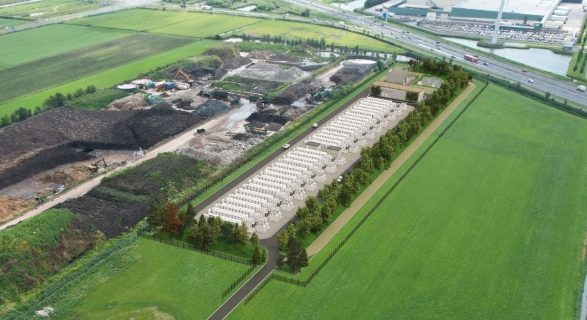
Upon completion, Antares will be the first BESS of its scale to connect to TenneT’s high-voltage network in the Netherlands. This milestone is significant given the challenges of grid integration in the region, where over 70 GW of projects, primarily large-scale BESS initiatives, are currently awaiting grid connection. To address this bottleneck, TenneT has introduced flexible, time-dependent transmission right (TDTR) contracts, unlocking more than 9 GW of high-voltage grid capacity for off-peak hours.
The Antares project will play a vital role in balancing energy supply and demand, supporting the Netherlands’ transition to a more sustainable energy system. By storing excess renewable energy and releasing it during peak demand, the BESS will help mitigate grid fluctuations and enhance reliability for consumers and businesses.
Return’s initiative reflects a broader trend in the Netherlands toward expanding energy storage to complement the growing share of renewable energy sources. The company’s focus on integrating advanced BESS technology underscores its commitment to addressing grid challenges and supporting national energy goals.
A Return spokesperson stated: “The Antares project marks a significant step in our mission to deliver innovative energy storage solutions that strengthen the Dutch grid. By leveraging cutting-edge technology and strategic grid connections, we aim to contribute to a more resilient and sustainable energy future.”
The introduction of TDTR contracts by TenneT has been instrumental in facilitating projects like Antares, allowing developers to access grid capacity during off-peak periods. This approach not only accelerates the deployment of energy storage systems but also optimizes the use of existing infrastructure, reducing delays for large-scale projects.
Set to be operational in mid-2026, the Antares BESS is expected to set a benchmark for future energy storage projects in the Netherlands. Its connection to the high-voltage grid will pave the way for similar initiatives, fostering greater integration of renewable energy and enhancing grid stability across the region.
Return’s investment in Waddinxveen highlights the growing importance of battery storage in modern energy systems. As the Netherlands continues to expand its renewable energy capacity, projects like Antares will be critical in ensuring a balanced and efficient grid, supporting both environmental and economic objectives.